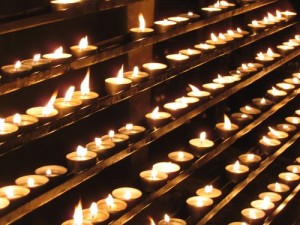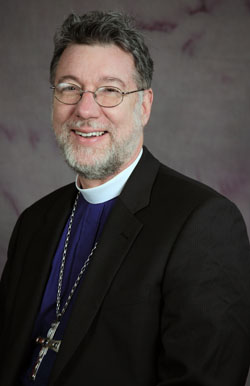Years ago, as the associate priest in a high Anglo-Catholic parish, I was challenged by members of the congregation over an issue I call “Holy Waste.” As things like this often happen in congregations, it all started innocently enough with a simple statement made in innocence of how it was being heard.
Sally, a member of the congregation, had recently experienced the death of her husband George and was at the point of deciding how to spend the money that had been given to the church in honor of her husband. The Rector asked if I would take Sally around the church and to talk about what options she might like to consider.
We started in the kitchen, but she said that George had not been much for cooking. We then traveled upstairs to the Sunday school rooms but again, Sally did not remember George ever going up to the youth area. After several other ideas were explored, with much the same result, we finally ended up in the sanctuary.
The church itself is a beautiful Gothic structure with wonderful stained glass, a massive altar area and grand carving. We stood in the back and admired the structure, which always felt to me as if it were holy all by itself. Sally then said, “What about votive candles? George always loved to sit quietly in the church and to think about the people in his life and pray for them.”
“Votive candles would be great,” I responded. “Let’s take that idea to the rector and vestry.” And so we did. The rector liked the idea, the vestry liked it and so did the altar guild, which would be responsible for maintaining the candle supply. All was set and in a few weeks the stand had been ordered, received and installed in the front of the church just to the left of the lectern.
It was a few weeks later that I got into trouble. I was walking in the church after services one Sunday and talking to a parishioner about the votive candles. I remember telling her that the candles allowed people to express their concerns in a tangible way. Then I said it, “It’s a real act of holy waste.” Nothing further was said at the time about my remark but a few days later I learned that people were talking about how the associate did not like the candles and thought that they were wasteful!
Not wasteful, but an act of holy waste. In the weeks that followed I explained what I was trying to express by that phrase. When a candle is lit for someone we love, whether someone alive who is struggling or someone who has died, we let the candle burn all the way down to nothing for that one prayer. The entire candle is offered to God as a gift. It can be thought of a wasteful in that we expend a good deal of candle power on a single prayer, but I think of it as holy waste, an expansive gift offered to a generous God. Of course, in time things settled down and as far as I know the congregation continues to offer votive candles to this day!
Votive candles are not going to change the world all that much and there are plenty of Episcopal congregations around that would find their use of little help. It would seem inappropriate in some places but there have been times when I have been blessed to be in a place where votive candles were an option. I remember especially the day I learned that my brother died.
I had just completed walking the five hundred mile Camino De Santiago pilgrimage in Spain and was vacationing with my wife in the Spanish town of Salamanca. I went to a local shop to use a computer to retrieve my e-mail and learned from my grown daughter that Patrick, my older brother, had died earlier in the week of a heart attack. I found my wife, told her and then headed for the old Cathedral of Salamanca. As I walked in the Cathedral, I saw a votive candle stand in one corner with several candles burning. It was black with a cross and some skulls carved in the center. I lit a candle and said prayers for the repose of the soul of my brother, Patrick. Then I began to simply walk the inside of the Cathedral making a circle back to the candles. Several circles later I felt a sense of peace.
Holy waste, an expansive gift given to God in thanksgiving and prayer; it can be a blessing.
by The Rt. Rev. Michael Hanley, Bishop of Oregon

